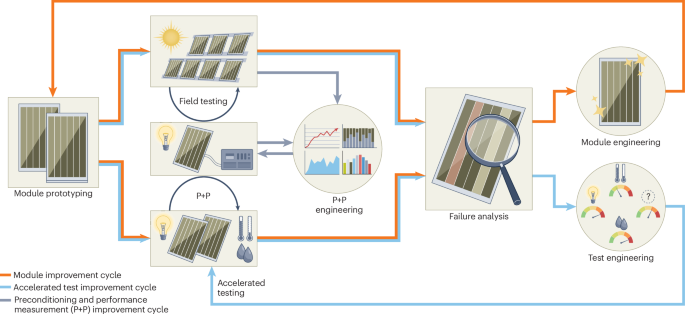A Bill Like No Other
Over the past few months, the nation’s attention has darted between the chaos and cruelty of Elon Musk’s vandalizing the federal government, the merciless brutality of official assaults on innocent immigrants, the Trump Administration’s wanton disregard of numerous statutes and court orders, its demolition of decades of civil rights progress, its multi-front war on science and higher education, its steady march toward greater authoritarianism, its wildly disruptive on-again-off-again trade wars, its betrayal of and threats against dependable allies, and its humiliation of numerous large law firms – along with a cornucopia of scandals, soap operas, and corruption. Each is appalling in its own right, and cumulatively they augur badly for the future of this country as we have known it. It therefore should not be surprising that President Trump’s transformative reconciliation bill has flown relatively under the radar. Yet on it marches, with its enactment into law quite possible within the next two to three weeks. Although it reprises several familiar themes in Republican fiscal legislation, in many important respects this bill nonetheless breaks the mold. Substantively, this bill is distinctive in ways both grand and small. Republicans in the modern era have not paid for their tax cuts: the tax cuts of 1981, 2001, 2003, and 2017 were all huge budget-busters. (By constrast, the Democrats’ Affordable Care Act and Inflation Reduction Act contained sufficient offsets to include deficit reduction dividends.) Yet even relative to prior tax cut legislation, the pending reconciliation bill is strikingly irresponsible. This country has long enjoyed a large margin for error on fiscal policy because of the size of its economy and prior generations’ record of probity; this legislation may well exhaust that margin and impair both our standard of living and our economic independence for decades to come. House Speaker Mike Johnson grins and insists that the legislation will shrink the deficit, giving his best immitation of a toddler whose face is smeared with chocolate insisting that he had nothing to do with that most unfortunate raid on the cookie jar. His claim now, like Republicans’ arguments for each of their prior budget-busting tax cuts, is that “dynamic effects” – a supposed surge in growth resulting from lower taxes on the affluent – will more than offset the revenue losses. Those claims proved false on each prior occasion, and no less than six independent estimators have concluded that the current bill will sharply increase the deficit even with dynamic effects factored in. While showing no interest in preventing a surge in the already-large deficit, the legislation nonetheless finds time to devastate both Medicaid and the Supplemental Food Assistance Program (SNAP). These are not mere “cuts”; these are transformative body blows that will leave each program wholly incapable of performing the basic functions long assigned to it. Impoverished workers unable to find steady employment will be denied both health coverage and food aid until they can get back on their feet. Even those that are working steadily will be cut off in droves as grossly overburdened state human services offices with full voicemails and huge email backlogs fail to process the vast volume of monthly work reports the legislation will demand. In the past, these kinds of structural changes in anti-programs have proven impossible to reverse even when the political winds change. Rather than just comparing badly with European social democracies in our provision for low-income people, this country will now have policies more parsimonious that those in some developeing countries with a fraction of our GDP per capita. The Party that has long championed federalism and condemned unfunded mandates on state and local governments is inflicting massive cost-shifts to states in both Medicaid and SNAP, compelling states to pay part of SNAP benefit costs for the first time in the modern program’s history. These huge new costs will arrive just as states’ revenues are likely to plunge with the slowing economy – and just as their human services agencies face a surge of new demands keeping track of recipients’ hours of work each moth. The Congressional Budget Office’s cost estimate apparently assumes that a number of states unwilling or unable to pay the state share of SNAP benefits will leave the program entirely. Once SNAP ceases to have nationwide coverage, senators from the states that drop the program will have no reason not to seek as many additional cuts as they can get to pay for things that do benefit their constituents. Without formally repealing the Affordable Care Act, the legislation will unambiguously break the ACA’s commitment to eliminating uninsuredness among U.S. citizens and legal permanent residents. With large numbers of involuntarily uninsured people again, problems of uncomp
Over the past few
months, the nation’s attention has darted between the chaos and cruelty of Elon
Musk’s vandalizing the federal government, the merciless brutality of official
assaults on innocent immigrants, the Trump Administration’s wanton disregard of
numerous statutes and court orders, its demolition of decades of civil rights
progress, its multi-front war on science and higher education, its steady march
toward greater authoritarianism, its wildly disruptive on-again-off-again trade
wars, its betrayal of and threats against dependable allies, and its humiliation
of numerous large law firms – along with a cornucopia of scandals, soap operas,
and corruption. Each is appalling in its
own right, and cumulatively they augur badly for the future of this country as
we have known it.
It therefore should not be surprising that President Trump’s transformative reconciliation bill has flown relatively under the radar. Yet on it marches, with its enactment into law quite possible within the next two to three weeks. Although it reprises several familiar themes in Republican fiscal legislation, in many important respects this bill nonetheless breaks the mold.
Substantively, this bill is distinctive in ways both grand and small. Republicans in the modern era have not paid for their tax cuts: the tax cuts of 1981, 2001, 2003, and 2017 were all huge budget-busters. (By constrast, the Democrats’ Affordable Care Act and Inflation Reduction Act contained sufficient offsets to include deficit reduction dividends.) Yet even relative to prior tax cut legislation, the pending reconciliation bill is strikingly irresponsible. This country has long enjoyed a large margin for error on fiscal policy because of the size of its economy and prior generations’ record of probity; this legislation may well exhaust that margin and impair both our standard of living and our economic independence for decades to come.
House Speaker Mike Johnson grins and insists that the legislation will shrink the deficit, giving his best immitation of a toddler whose face is smeared with chocolate insisting that he had nothing to do with that most unfortunate raid on the cookie jar. His claim now, like Republicans’ arguments for each of their prior budget-busting tax cuts, is that “dynamic effects” – a supposed surge in growth resulting from lower taxes on the affluent – will more than offset the revenue losses. Those claims proved false on each prior occasion, and no less than six independent estimators have concluded that the current bill will sharply increase the deficit even with dynamic effects factored in.
While showing no interest in preventing a surge in the already-large deficit, the legislation nonetheless finds time to devastate both Medicaid and the Supplemental Food Assistance Program (SNAP). These are not mere “cuts”; these are transformative body blows that will leave each program wholly incapable of performing the basic functions long assigned to it. Impoverished workers unable to find steady employment will be denied both health coverage and food aid until they can get back on their feet. Even those that are working steadily will be cut off in droves as grossly overburdened state human services offices with full voicemails and huge email backlogs fail to process the vast volume of monthly work reports the legislation will demand. In the past, these kinds of structural changes in anti-programs have proven impossible to reverse even when the political winds change. Rather than just comparing badly with European social democracies in our provision for low-income people, this country will now have policies more parsimonious that those in some developeing countries with a fraction of our GDP per capita.
The Party that has long championed federalism and condemned unfunded mandates on state and local governments is inflicting massive cost-shifts to states in both Medicaid and SNAP, compelling states to pay part of SNAP benefit costs for the first time in the modern program’s history. These huge new costs will arrive just as states’ revenues are likely to plunge with the slowing economy – and just as their human services agencies face a surge of new demands keeping track of recipients’ hours of work each moth. The Congressional Budget Office’s cost estimate apparently assumes that a number of states unwilling or unable to pay the state share of SNAP benefits will leave the program entirely. Once SNAP ceases to have nationwide coverage, senators from the states that drop the program will have no reason not to seek as many additional cuts as they can get to pay for things that do benefit their constituents.
Without formally repealing the Affordable Care Act, the legislation will unambiguously break the ACA’s commitment to eliminating uninsuredness among U.S. citizens and legal permanent residents. With large numbers of involuntarily uninsured people again, problems of uncompensated care and cost-shifting will return in force, potentially destablizing health insurance markets just as life-altering medical debt becomes more widespread.
Republican claims to favor a stable, dependable pro-business climate are already difficult to credit in light of President Trump’s mercurial tariff policies and his Administration’s abrogation of binding contracts with innumerable businesses. This legislation removes all remaining credibility from those claims by stranding billions of dollars of investments made in good-faith reliance on the Inflation Reduction Act’s green energy provisions. Not only does it repeal the IRA’s tax credits for most new projects, it adds potentially insurmountable red tape burdens to claiming the credits for projects already in the pipeline.
As a long-time observer of Congress, however, what strikes me most is how very different the process is this year than I have ever seen it before. Few people involved seem to feel any real need to pretend to be engaged in serious, public-interested policy-making. The legislation is miserably drafted and filled with nonsensical provisions, but nobody seems to care.
For example, although our country long ago decided to allow workers to retire at age 62 if they accept reduced Social Security benefits, the bill would deny food assistance to people between 62 and 65 who cannot find and document at least half-time work. The legislation purports to exempt people with disabilities, but once it cuts off their health coverage they likely will have difficulty documenting their conditions.
The bill also changes the trigger for eligibility for green energy tax credits in a nonsensical way. Under current law, a project’s eligibility for tax credits depends on the date on which construction begins – a date within the control of the project sponsor. The reconciliation bill would instead make eligibility depend on the date a project goes on-line, which depends on numerous factors outside the sponsor's control. The massive uncertainty this creates will surely deter lenders from financing projects premised on the tax credits. The businesses seeking various other tax preferences for construction would surely declare a similar change intolerable. But this everyone is treating this legislation as sui generis, something that will not be a policy preference for anything.
The legislation also gives a 100% tax credit – instead of the usual charitable deduction – for donations to organizations supporting the schools of their choice (including religious schools). Individuals therefore could direct federal subsidies without being out-of-pocket a penny. Not only that, but if they contribute appreciated securities, they can receive a credit for those securities full value without paying capital gain taxes. As a result, these privileged charitable “donations” would have a negative cost to the donor. Hardly serious public policy.
President Trump’s control over the Party is so absolute that nobody can imagine any Republican opposing the legislation in a way that would threaten its passage. To be sure, a few senators and representatives will receive the leadership’s permission to vote “no”: I can confidently predict that final passage in the House will be achieved by a single vote. Others will gain media attention for talking tough about the deficit (or whatever) only to fall into line at the end. But nobody is willing even to seriously consider bringing down the bill, and everyone knows it.
As a result, Committee chairs and their staff have largely tuned out the concerns even of fellow Republicans, much less Democrats. Sen. Alex Padilla is not the only senator finding his office suddenly devalued.
Top lobbyists, including those representing well-funded corporate interests, are having difficulty even getting meetings: committee staff see no reason to talk with them, and other Republicans apparently fear being put in a position of having to admit their powerlessness. Indeed, some of the industry groups that historically have blocked Medicaid cuts that would threaten their incomes appear to have given up.
The SNAP cuts could be moderated significantly without affecting the overall deficit impact simply by deleting the legislation’s increases in egregious corporate welfare for agricultural interests. These provisions have nothing whatsoever to do with the President’s agenda (except, perhaps, buying some silence over the chaos his trade wars have caused). Traditionally, farm interests have sought to avoid the appearance of plundering domestic food assistance programs for fear of setting a precedent on the Agriculure Committees that could later endanger their subsidies – many of which are all but impossible to defend – when funds are needed to increase food aid. But traditional red lines and principles of comity apparently no longer apply.
Absent a remarkable turn of events, the reconciliation bill seems likely to become law in early July. The bond markets likely will take some time to render a final verdict on its deficit impact. Groups advocating for fiscal responsibility likely will wait a discrete interval for people to forget their muted reaction to this gigantic budget-buster before returning to their familiar retain of demanding “shared sacrifice” (which rarely seems to ask much of those whose tax breaks drove up the deficit).
If President Trump’s tariff chaos tips the economy into recession, we will see very soon the impact of disqualifying the unemployed from health coverage and food assistance. The disqualification of the unemployed, as well as the state match, will prevent SNAP from playing the role of automatic stabilizer to the extent it has in past recessions.
Beyond these substantive impacts, this legislation has fundamentally changed how Congress operates. Things may appear to return to normal on lower-stakes legislation, with Members and their staff hearing out special interests and busily negotiating deals. But something has been broken that will be difficult or impossible to repair. The legislative process I taught to my students just this past semester is no more. As bad as that process was, I fear that what replaces it will be much, much worse.
@DavidASuper.bsky.social @DavidASuper1














































































































































